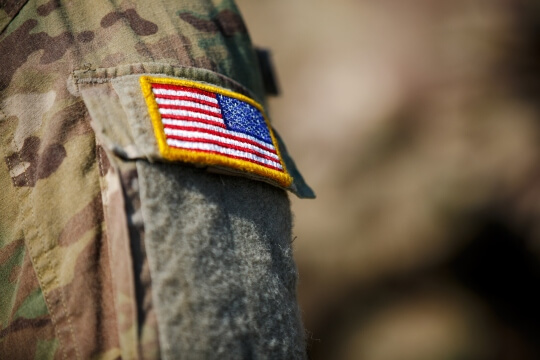Veterans Outreach Team Offers Support During COVID-19

The ongoing COVID-19 pandemic has made the Veterans Outreach team at The Mesothelioma Center at Asbestos.com more important than ever before.
We’re still here to serve.
The U.S. Department of Veterans Affairs last month made its annual update to the compensation rates for disability claims. It’s a reminder that benefits are available for veterans with mesothelioma and asbestos-related medical conditions.
Included in the update is a 1.3% cost-of-living increase. A veteran with full disability can now receive $3,146.42 a month. A veteran with a spouse is eligible for $3,321.85. The surviving spouse of a veteran can receive $1,357.56.
Unfortunately, all regional benefits offices are still closed due to the COVID-19 pandemic. Only some county veterans affairs offices are open, but that’s on a state-by-state, county-by-county basis. Some are open only by appointment and are limited to one person in the office at a time.
For some claims, the processing timeline has almost doubled. COVID has just slowed everything down. So, it’s generally been tougher to file for many veterans, depending on where they live.
Claims Involving Mesothelioma Can’t Wait
Unfortunately, VA claims can’t wait, especially those involving an aggressive cancer like mesothelioma that was caused by asbestos exposure.
Veterans should not have to wait just because the office isn’t open.
Many people who have respiratory diseases do not want to go out in public because of the risk of contracting COVID. That’s where we can help. Sometimes, it’s just better to file online or with a paper application.
I want everyone to know that if you’re looking for information on how to start a claim for an asbestos-related disease, we can direct you to the resources you need or help you file a VA claim – line by line – even if your local resource offices are closed because of COVID restrictions.
We can help you or a loved one file asbestos-related VA claims and access potential benefits.
Get Help NowMesothelioma Center’s VA Expertise Is Invaluable
My role as a subject matter expert with The Mesothelioma Center is to work alongside the local veteran service officers or directly with veterans who don’t have access to a veteran service officer to file these claims.
When you’re filing a claim, developing the evidence is especially important if you are not sitting down with your veteran service officer.
If you are filing online or mailing in an application, you have to make sure all required medical evidence or asbestos exposure evidence the VA needs to make the decision is included in your initial claim filing. Otherwise, it will slow things down or even cause the claim to be denied outright.
The asbestos exposure summary is important for every single asbestos claim. That’s where you have to describe in detail how, when and where you were exposed during your military service. And you need to prove to the VA that you had more asbestos exposure in the military than in any civilian occupation you may have had.
Proving that an asbestos-related disability was caused by military service is difficult. Vets rarely have breathing problems or a diagnosis during their service. Mesothelioma, for example, has a latency period of 20 to 60 years from initial exposure to asbestos before symptoms appear.
We can help a veteran explain it on the claim.
Claims Go Beyond Mesothelioma
The other important piece is the medical nexus, the link between the diagnosis and what caused it – in this case, the asbestos. For every disease except mesothelioma and asbestosis, the VA requires a medical nexus. And we can help with that, too.
Mesothelioma receives the majority of public awareness attention, but the Department of Veterans Affairs also recognizes a much more extensive list of asbestos-related diseases that affect veterans. They may qualify a veteran for health care and a percentage of that full-disability compensation.
We can provide guidance on what is required and how to speak to your doctors to secure the evidence you need.
Consulting with an expert who understands VA asbestos claims – like me –before you file can really save you a lot of time in the long run.
We’re expanding our efforts to help train local veteran servicer officers on how they can better handle asbestos-related VA claims.
I’ve traveled to 12 different states in the past two years to provide training for more than 800 veteran service officers on asbestos-related claims. I’ve done training sessions online for an additional 10 states during the COVID-19 pandemic.
I’m established as a subject matter expert. And that’s what our veterans need.
Our mission is still making sure that no veteran gets left behind.